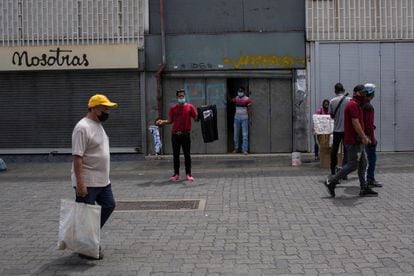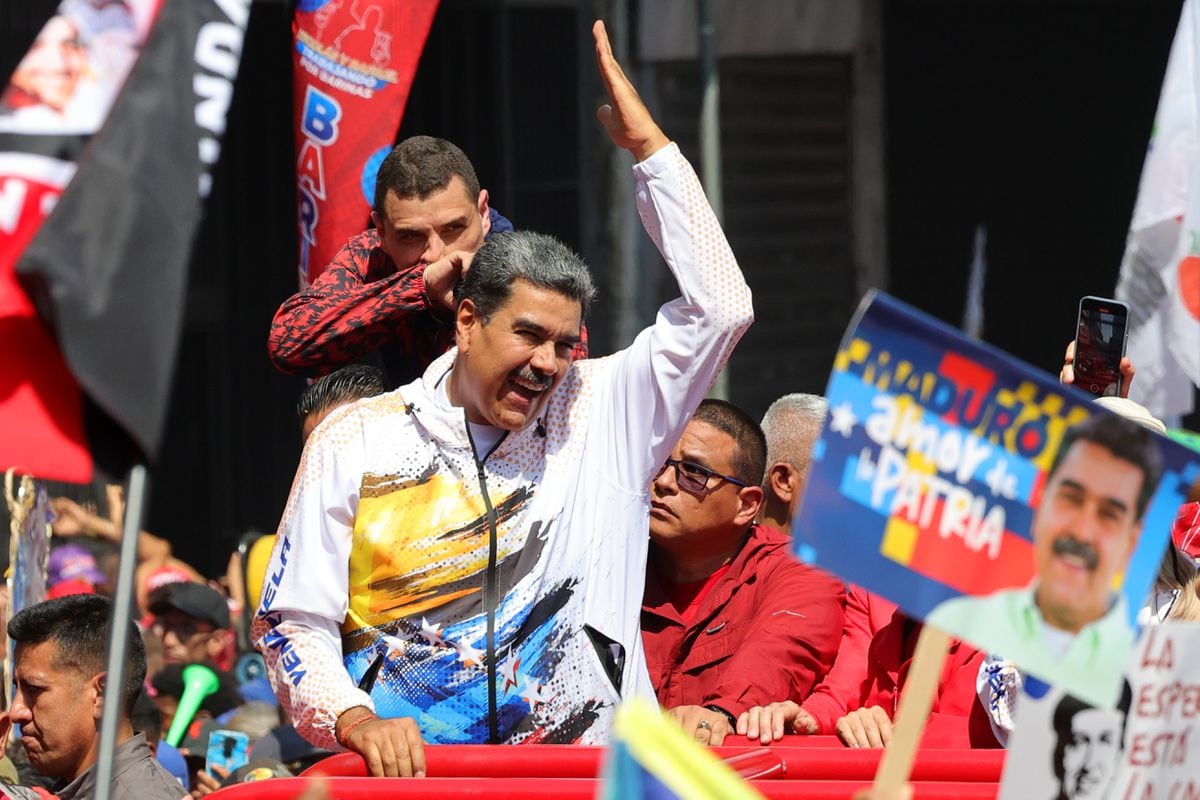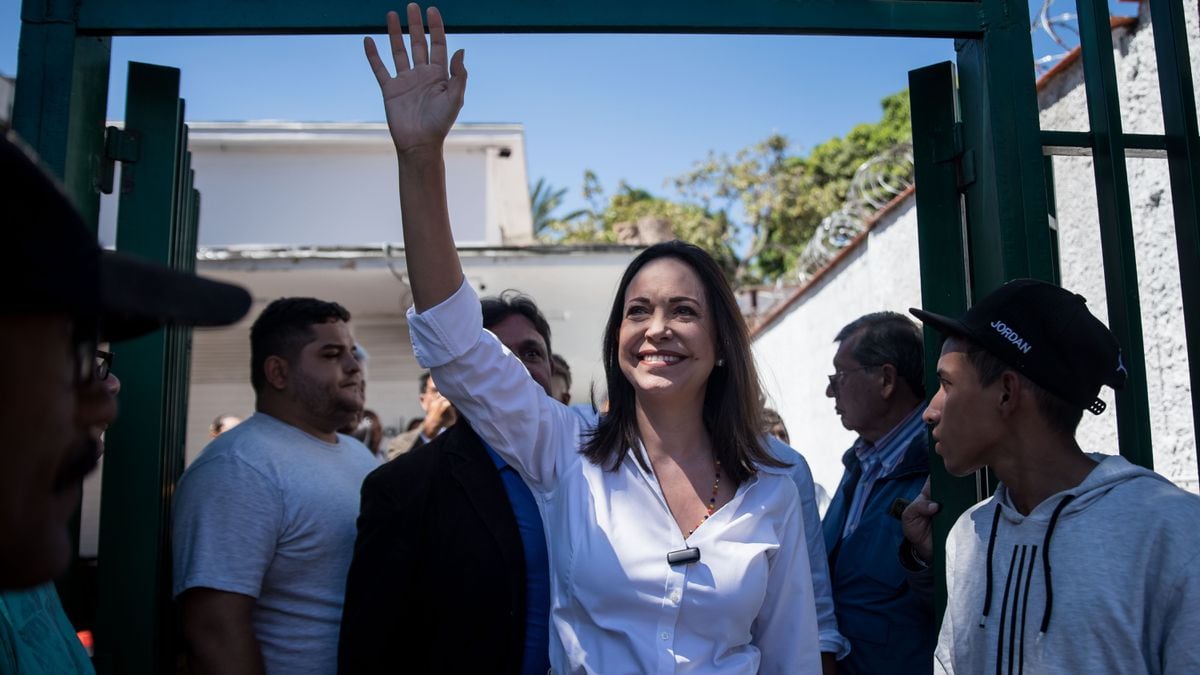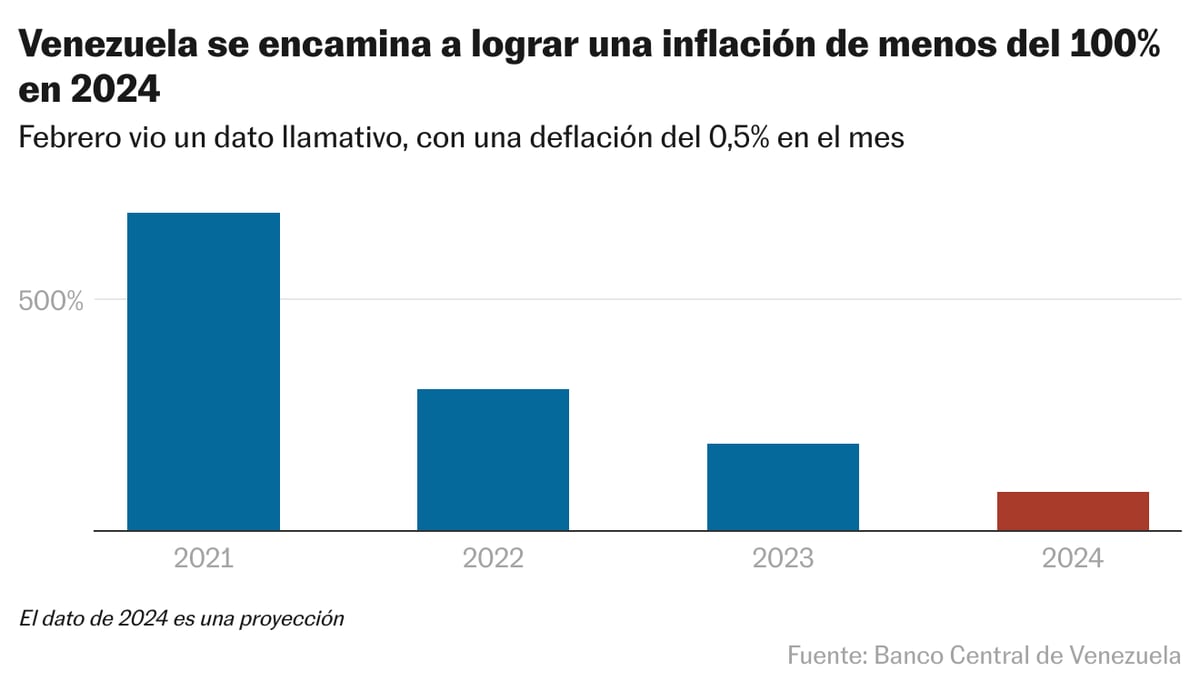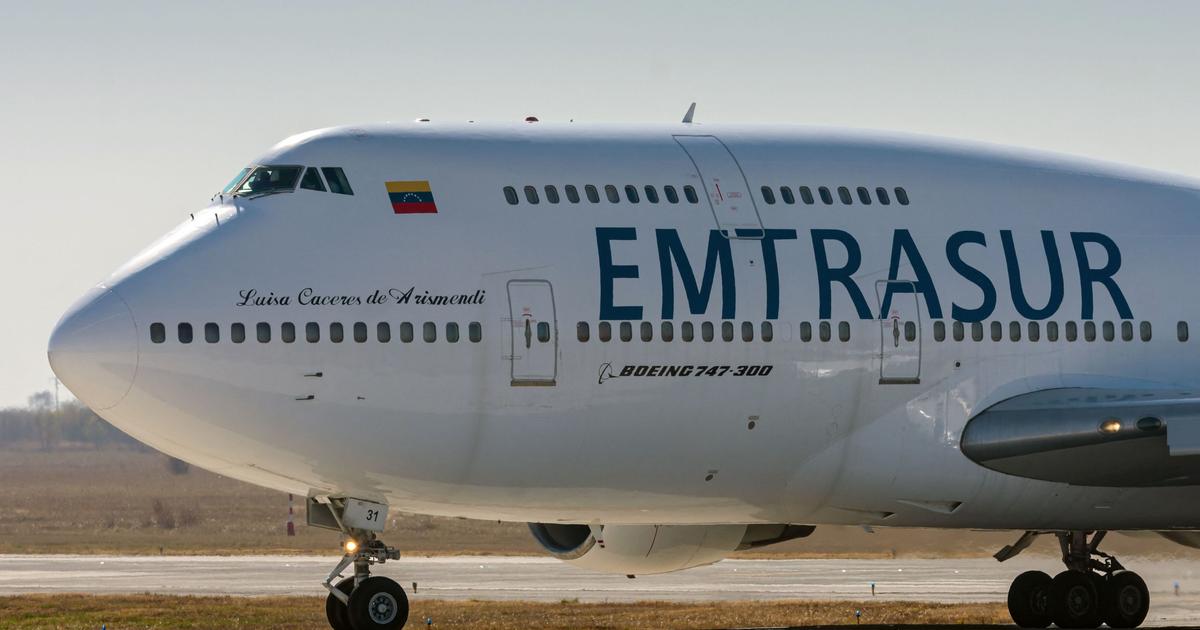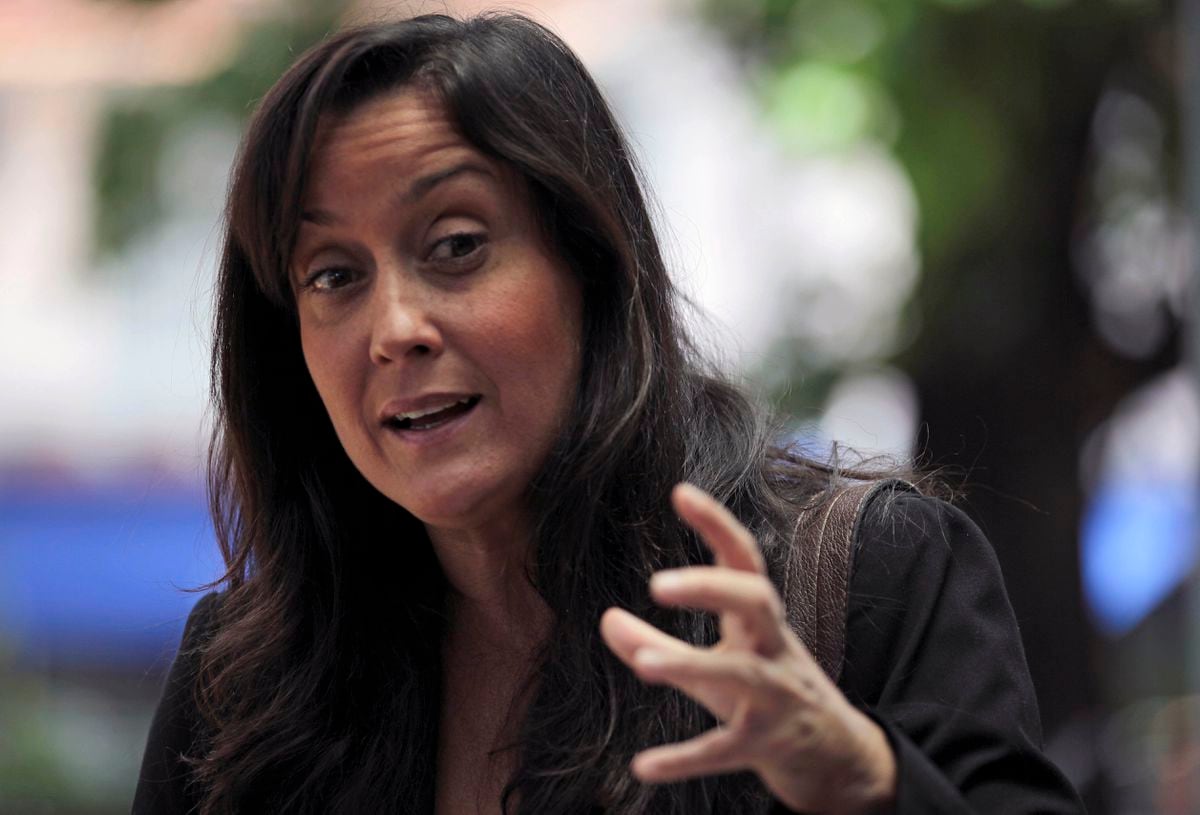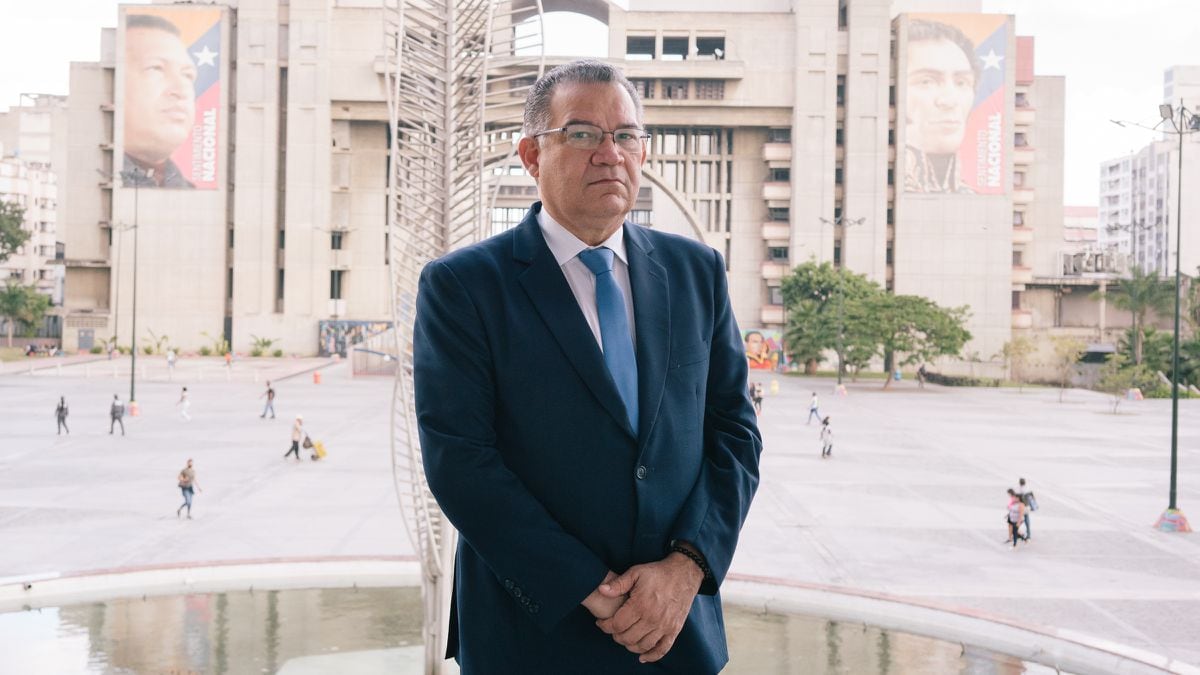The Sabana Grande boulevard in Caracas, on March 22. PEDRO RANCES MATTEY / AFP
Last summer, a new supermarket - or bodegón, as they are known - opened in Caracas filled with Iranian products.
It was a strident signal of collaboration between Venezuela and Iran, two countries sanctioned by the United States that seek to strengthen their economies and incomes on the margins of geopolitics.
For many Venezuelans, the store is one of many that offer imported products.
For others, who hope that Washington's bans fulfill the objective of pressuring the government of Nicolás Maduro to leave, the announcement sowed a question: can Venezuela end up like Iran?
The Middle Eastern country has been alleviating US sanctions for decades, and neither social protests nor difficulties in integrating into international trade have achieved the objective sought by the US government: for Iran to renounce its nuclear weapons.
Although the purpose of the sanctions against Venezuela is different, the logic is similar: it is about squeezing the governments economically until they give in.
With Venezuela and Iran working together, it is inevitable to question the impact that sanctions have had on the Latin American country.
On Tuesday, a US senator urged the Administration of President Joe Biden to allow diesel fuel exchanges between private companies and Venezuela, arguing that the ban is worsening the serious humanitarian crisis in the South American country.
"Venezuela's economic collapse precedes sanctions," says Ricardo Hausmann, a professor of Development Economics at Harvard University and the country's former planning minister in the 1990s.
The accumulated fall of the Venezuelan economy under Chavismo is 75% to date, he points out, but by 2017, the year in which the US imposes the first sanctions, the fall was already 65%.
“The impact of the sanctions has to do with how much Venezuela would have continued to fall without sanctions compared to how much it fell with sanctions;
and that difference is difficult to assign ”.
Oil crash
The sanctions are focused on limiting government revenues, including oil revenues.
In July 2017, Trump took an initial step and blocked the assets of the Maduro government in the US, in addition to prohibiting Venezuelan debt bonds from being listed on the US market.
There are those who argue that it was this that caused a dramatic drop in oil production, but it is impossible to separate this from the decision that the government made in 2018 to fire most of the managers of the state-owned company Petróleos de Venezuela (PDVSA) , including the president, and replacing them with the military, says Hausmann: "Obviously, that had an effect on production."
The US government admitted in a report published last month that the sanctions were one factor among several that have contributed to the decline of the Venezuelan economy.
"The sanctions, particularly those imposed on the state oil company in 2019, probably contributed to the steepest decline in the Venezuelan economy, mainly by limiting revenues from oil production," says the Accountability Office (GAO) report. , for its acronym in English).
"However, the mismanagement of the Venezuelan state oil company and the drop in oil prices are other factors that have also affected the performance of the economy during this period."
The second round of sanctions imposed in 2019 do not directly prohibit companies from doing business with PDVSA.
What the US Government did was freeze the accounts of the company's subsidiary in its territory, through which it does business abroad.
If a company wants to do business with PDVSA, it can do so, but the profits remain in the banks in the United States, they cannot reach the Maduro government.
This round of sanctions, Hausmann says, ended up liberalizing the economy.
"The sanctions prohibited people from doing business with the Venezuelan government, not with ordinary Venezuelans," he explains.
Until 2019, the Government had monopolized imports and, as of the new sanctions, "it had no alternative but to liberalize imports, liberalize prices, unify the de facto exchange rate, eliminate controls."
This had a direct impact on the food, medicine and goods that citizens can import into the country.
On tiptoe
What is difficult to quantify is the “overcompliance” with sanctions by private international organizations, which affects investment and humanitarian aid in the midst of a serious malnutrition and health crisis that affects seven million people with extreme needs, says Tamara Herrera, director and chief economist of Síntesis Financiera, an independent analysis firm in Caracas.
"Who is harmed by the sanctions?
Well, the national private sector has suffered, to varying degrees, from the problem of overcompliance.
Humanitarian aid too ”.
That is, an organization interested in exporting products, investing or sending humanitarian aid thinks twice, because the lack of transparency on the part of the Venezuelan government, as well as the requirements of the United States to ensure that they are not in violation of the sanctions, ends up driving away capital or aid, explains Herrera.
"It is an effect of excess compliance by way of prevention that is not stipulated in the sanctions," says the specialist, "companies have to tiptoe."
The US Department of the Treasury and the State have taken steps to "mitigate the negative consequences," according to the GAO report.
The Treasury issued licenses that allow various types of humanitarian assistance transactions in Venezuela and maintains a call center and email account for organizations to receive assistance with compliance issues related to sanctions.
President Joe Biden and his administration “have said that there will be a complete review of the previous sanctions programs and the adverse effects on humanitarian issues, especially of the last five years and that will include Venezuela, because Venezuela has been one of the most sanctioned alongside Syria, North Korea and China, "says Justin Bartlett, research associate at the Center for New American Security (CNAS) in Washington.
The CNAS is the alma mater of several advisers to the Biden and Barack Obama Administration.
"Also, I think there will be a change in the way sanctions are used," says Bartlett by phone from Washington.
“And this is something that the administration and its appointees, before being appointed, have mentioned, that sanctions are a policy tool, they are not a policy in itself.
So if you use sanctions solely as your foreign policy, that's not a strategy.
They should only play a complementary role ”.
The "eternal" sanctions
Bartlett, who focuses his work on sanctioned countries, warns that trade and cooperation ties between Iran and Venezuela should not necessarily indicate that the Latin American country will endure sanctions for decades, like Iran.
"Although both economies are oil companies, they have important differences," he explains.
"Iran's economy is much more diversified than Venezuela and that is a very important issue, because if most of these sanctions are directed at this sector, there may be a stronger impact."
“We are also seeing some similarities in the way that Maduro is using this economic pain as a way to justify his regime and justify his control and use it as a form of propaganda, which may be an indication that the sanctions are being effective if the regime is preoccupied, trying to maintain the support of the people, "adds Bartlett.
The possibility that the Venezuelan government will adapt to the sanctions and end up like Iran "is definitely a worrying scenario," says Hausmann.
"Cuba was also like this with
forever
sanctions
.
But the truth, the scientifically certain, is that the three times they sat down to negotiate, the only weight that the opposition had were sanctions, there is nothing that the Maduro regime wants from the Venezuelan opposition that I could obtain in a negotiation, except the sanctions".
Subscribe here
to the
newsletter
of EL PAÍS América and receive all the informative keys of the current situation in the region.

